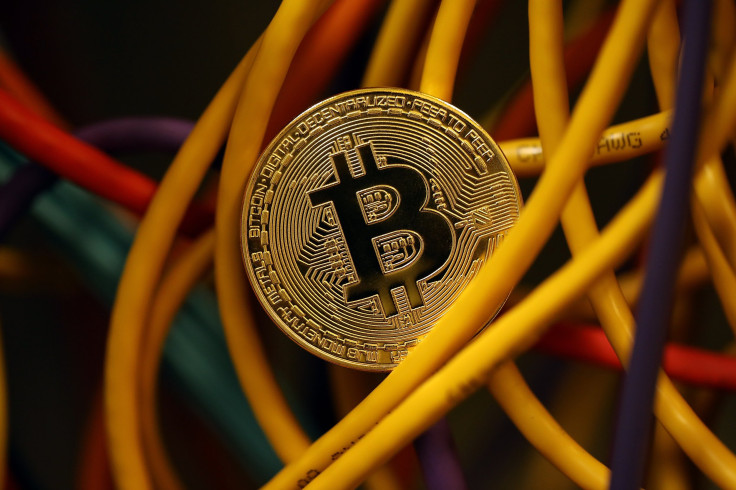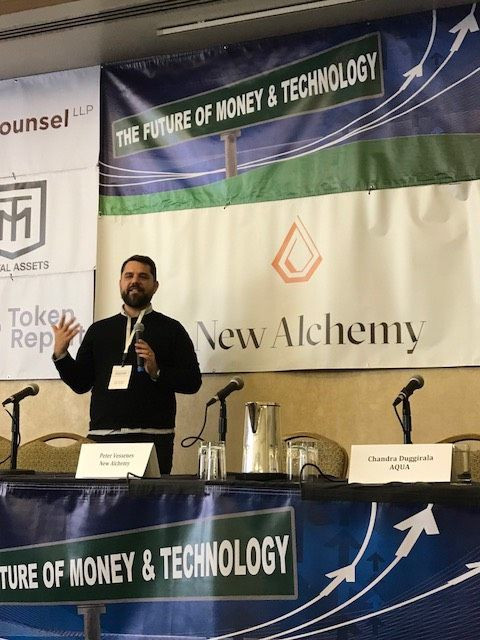Indiegogo And Bitcoin Are Coming To ICO Token Sales

The crowdfunding platform Indiegogo recently announced a new partnership with the FINRA-registered broker-dealer MicroVentures to offer initial coin offering services. Token sales, often called ICOs, have raised around $3 billion this year with hundreds of new cryptocurrencies. The first experimental ICO with Indiegogo, the Fan-Controlled Football League, is already offering up to $5 million in tokens. Starting in 2018, companies will be able to apply for legal guidance from MicroVentures and the ability to sell their tokens on the Indiegogo partnership’s new website.
Excited to announce you can now invest in Initial Coin Offerings (ICOs) on Indiegogo through our partnership with MicroVentures. Join the cryptocurrency revolution: https://t.co/zAUNxgmNpq pic.twitter.com/SOiU2PJOEI
— Indiegogo (@Indiegogo) December 13, 2017
“Our ICO service is designed to allow the maximum number of investors to participate in ICO token pre-sales and sales,” Indiegogo founder Slava Rubin told TechCrunch. The U.S. Securities and Exchange Commission is now paying close attention to token sales. CoinMarketCap currently estimates the cryptocurrency industry’s global market cap is more than $508 billion. It’s unclear how increased regulation and compliance will impact this rapidly growing industry. However, 2017 was clearly a turning point and there is no going back.
“It looks like the SEC is taking a very measured approach,” Aaron Lasher, co-founder for the cryptocurrency service provider Bread, told International Business Times. “Which I think is the appropriate course of action... I think the amounts [of capital raised] will get more modest, for the most part. But I do think we’ll see a different kind of companies doing ICOs.” Mainstream tech companies such as Overstock and Kik have already launched lucrative token sales. Before 2017, such token sales were generally niche crowdfunding campaigns for new projects in the Ethereum community. This trend exploded over the summer, becoming a staple in blockchain-savvy corners of the global tech industry.
Bread will launch its own ICO on Friday, aiming to raise $20 million in addition to the $12 million the former bitcoin wallet provider already raised during presales. This ICO illustrates how token sales matured this year. Rather than funding the launch of a new tool or network, Bread tokens will offer users exclusive access to perks and services via their established platform. Bread’s free mobile app offers a bitcoin wallet used by 750,000 people worldwide. In September, Bread pivoted from viewing itself as a mobile wallet to a "decentralized financial institution.”
Bread users can already buy cryptocurrency through the mobile app, thanks to partnerships with several external exchanges. BRD tokens will soon allow users to buy cryptocurrency at a discount, including select presale ICO tokens, plus bonuses such as access to a customer help hotline and invitations to cryptocurrency networking events. Like many bitcoin veterans, Bread’s team was initially hesitant to work with alternative coins. Lasher said they now plan to add support for Ethereum-based tokens and bitcoin cash. The basic wallet app is still free, even as bread refashions itself into a financial services platform.
A sneak peak for what's coming soon... #bread #btc #ethereum pic.twitter.com/HjEWqbTDcF
— Bread (@breadapp) November 27, 2017
“We can make it worth people’s while to hold Bread tokens without excluding anybody,” Lasher said. “Earning your wages in bitcoin, paying your bills in bitcoin, issuing loans in bitcoin, giving out loans in bitcoin, investing in bitcoin, all of these are on the roadmap. We foresee a future where you can do almost anything with your bitcoin that you can already do with dollars today.”
Similar to other decentralized technology incumbents that raised millions of dollars worth of capital with token sales this year, such as Blockstack, Bread is taking a bureaucratic approach to token sales. “In order to participate in the crowdsale, this really goes back to raising the bar of best practices, anyone who wants to actually send Ethereum to the address and receive Bread tokens needs to pre-register, submit verification and identification, undergo a background check, and then register their wallet by sending a very small amount of ether to the test address,” Lasher said. “We know who everyone is throughout the entire sale.”
Some token sales let almost anyone with a cryptocurrency wallet participate, without registering personal details like their name or address. Most regulators worldwide still haven’t figured out how token sales should operate in a lawful, compliant system. So many companies see this has an opportunity to raise cryptocurrency first, ask questions later. SEC is starting to reign in a few rogue cryptocurrency sellers. In the meantime, companies like Bread are roughly following something called a SAFT model. This means they collect all the “know your customer” compliance information that a company selling a security or regulated investment might need. So they will be prepared if regulators come knocking in 2018. More regulation, and bitcoin community activity, are two of the biggest shifts some ICO experts expect to see in 2018.

ICOs have gone so mainstream that even bitcoin loyalists are taking note. Peter Vessenes, managing director of the Ethereum-centric New Alchemy lab and co-founder of the Bitcoin Foundation, recently announced his team is creating a new way for people to use bitcoin to participate in token sales. This is a big deal because most ICOs sell Ethereum-based cryptocurrency, a totally different blockchain network. Vessenes' project is called the Deluge Network. "It connects to the bitcoin, litecoin, Zcash, monero, bitcoin cash and Ethereum networks," Peter Vessenes told IBT. "It's a design goal that it be useful first for moving cross-chain, second for spending." In 2018, he expects to see more regulation of tokens that classify as securities. As such, his team is particularly mindful when it comes to valuation and stability.
The cross-chain token metronome will be the first to use this bitcoin-friendly system when the blockchain startup Bloq launches its metronome token sale in February 2018. Some people consider Bloq’s project controversial because CEO Jeff Garzik was one of the most prominent developers in Segwit2x, an aborted attempt to force unpopular changes onto the bitcoin ecosystem by forking the network. The subsequent move to raise funds with a token aimed to overcome the challenges of divergent networks and forks, strikes some as ironic to say the least. Regardless of politics, using bitcoin to directly participate in token sales will open new doors for the entire industry. Bitcoin is still the most popular and widely used cryptocurrency. According to CoinMarketCap, bitcoin’s global market cap is around $280 billion.
“Lots of people are doing something with smart contracts, for all of those to be able to work directly with bitcoin is really interesting,” Vessenes said. “There is so much more value in the bitcoin ecosystem. To get smart contracts attached to bitcoin is a really big deal.” Lasher referred to this broader cryptocurrency movement as the beginnings of a “secular revolution.” This is pretty much the popular sentiment. When Indiegogo tweeted about their new ICO program, the tweet invited users to "join the cryptocurrency revolution."
© Copyright IBTimes 2024. All rights reserved.





















